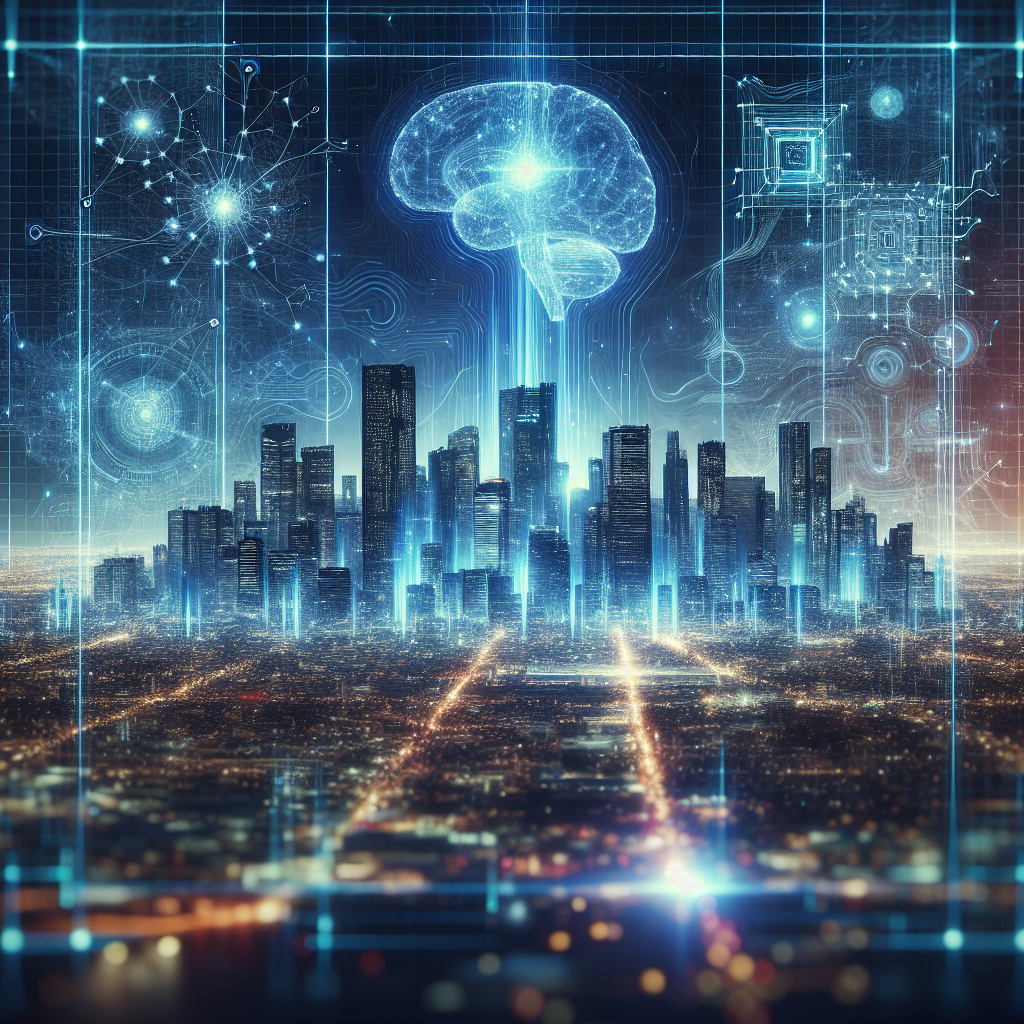Exploring the Boundaries of Artificial General Intelligence
Artificial General Intelligence (AGI) is a term used to describe a form of artificial intelligence that possesses the ability to understand, learn, and apply knowledge in a way that is similar to human intelligence. While current AI systems are specialized in specific tasks, such as image recognition or natural language processing, AGI aims to create a machine that can perform a wide range of cognitive tasks at a human level or beyond.
The concept of AGI has been a topic of interest and debate in the field of artificial intelligence for decades. Researchers and scientists have been working towards the goal of creating a machine that can think and reason like a human, with the potential to revolutionize industries and society as a whole. However, there are still many challenges and limitations to overcome before AGI becomes a reality.
In this article, we will explore the boundaries of artificial general intelligence, including the current state of research, the challenges that need to be addressed, and the potential implications of achieving AGI. We will also address some frequently asked questions about AGI and its implications for society.
The Current State of Research
While significant progress has been made in the field of artificial intelligence in recent years, AGI is still considered a distant goal. Current AI systems, such as deep learning models, are capable of performing specific tasks with remarkable accuracy, but they lack the ability to generalize their knowledge and apply it to new situations.
One of the key challenges in developing AGI is creating a system that can understand and learn from data in a way that is similar to human intelligence. While current AI systems rely on large amounts of labeled data to learn and improve their performance, humans are able to learn from much less data and generalize their knowledge to new situations.
Researchers are exploring different approaches to developing AGI, including symbolic reasoning, cognitive architectures, and reinforcement learning. These approaches aim to create a system that can reason, plan, and learn in a way that is similar to human intelligence, but there are still many challenges to overcome before AGI becomes a reality.
Challenges and Limitations
There are several challenges and limitations that need to be addressed in order to achieve AGI. One of the key challenges is developing algorithms that can learn from less data and generalize their knowledge to new situations. Current AI systems require large amounts of labeled data to learn and improve their performance, which limits their ability to adapt to new tasks and environments.
Another challenge is developing a system that can reason and plan in a way that is similar to human intelligence. While current AI systems are capable of performing specific tasks with remarkable accuracy, they lack the ability to understand and reason about the world in a way that is similar to humans.
Additionally, there are ethical and societal implications to consider when developing AGI. The potential impact of AGI on the job market, privacy, and security raises concerns about the future of work and society. Researchers and policymakers need to address these concerns and develop regulations and guidelines to ensure that AGI is developed and deployed responsibly.
Implications of Achieving AGI
Achieving AGI has the potential to revolutionize industries and society as a whole. AGI could automate a wide range of tasks and jobs, leading to increased efficiency and productivity in various sectors. It could also enable new applications and technologies that were previously impossible, such as personalized medicine, autonomous vehicles, and virtual assistants.
However, the implications of achieving AGI are not all positive. There are concerns about the impact of AGI on the job market, as automation could lead to job displacement and economic inequality. There are also concerns about the ethical and societal implications of AGI, such as privacy, security, and bias in AI systems.
Researchers and policymakers need to consider these implications and develop regulations and guidelines to ensure that AGI is developed and deployed responsibly. It is important to address the ethical and societal concerns related to AGI and ensure that the benefits of AGI are shared equitably across society.
FAQs about Artificial General Intelligence
Q: What is the difference between narrow AI and AGI?
A: Narrow AI refers to artificial intelligence systems that are specialized in specific tasks, such as image recognition or natural language processing. AGI, on the other hand, refers to a form of AI that possesses the ability to understand, learn, and apply knowledge in a way that is similar to human intelligence.
Q: When will AGI be achieved?
A: It is difficult to predict when AGI will be achieved, as there are still many challenges and limitations to overcome. Some researchers predict that AGI could be achieved within the next few decades, while others believe that it is still a distant goal.
Q: What are the ethical implications of AGI?
A: There are several ethical implications of AGI, including concerns about the impact of automation on the job market, privacy, security, and bias in AI systems. Researchers and policymakers need to address these concerns and develop regulations and guidelines to ensure that AGI is developed and deployed responsibly.
Q: How can we ensure that AGI is developed responsibly?
A: It is important to consider the ethical and societal implications of AGI and develop regulations and guidelines to ensure that it is developed and deployed responsibly. This includes addressing concerns about job displacement, privacy, security, and bias in AI systems.
In conclusion, artificial general intelligence has the potential to revolutionize industries and society as a whole, but there are still many challenges and limitations to overcome. Researchers and policymakers need to address the ethical and societal implications of AGI and develop regulations and guidelines to ensure that it is developed and deployed responsibly. By exploring the boundaries of AGI and addressing key challenges, we can unlock the full potential of AI and create a better future for all.

